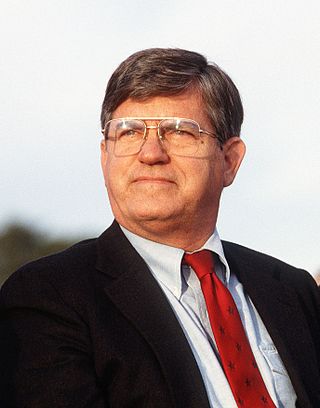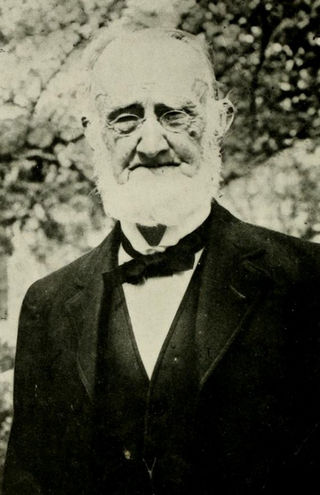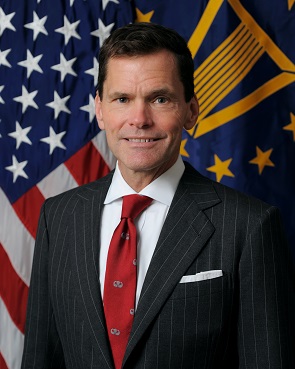Related Research Articles

Chapel Hill is a town in Orange and Durham Counties North Carolina, United States. Its population was 61,960 in the 2020 census, making Chapel Hill the 17th-most populous municipality in the state. Chapel Hill and Durham make up the Durham-Chapel Hill, NC Metropolitan Statistical Area, which had an estimated population of 608,879 in 2023. When it is combined with Raleigh, the state capital, they make up the corners of the Research Triangle, which had an estimated population of 2,368,947 in 2023.

Orange County is a county located in the Piedmont region of the U.S. state of North Carolina. As of the 2020 census, the population was 148,696. Its county seat is Hillsborough. Orange County is included in the Durham-Chapel Hill, NC Metropolitan Statistical Area, which is also included in the Raleigh-Durham-Cary, NC Combined Statistical Area, which had an estimated population of 2,368,947 in 2023. It is home to the University of North Carolina at Chapel Hill, the flagship institution of the University of North Carolina System and the oldest state-supported university in the United States.

Chatham County is a county located in the Piedmont area of the U.S. state of North Carolina. It is also the location of the geographic center of North Carolina, northwest of Sanford. As of the 2020 census, the population was 76,285. Its county seat is Pittsboro.

Davidson is a suburban town located in Iredell and Mecklenburg counties, North Carolina, United States, on the banks of Lake Norman. It is a suburb in the Charlotte metropolitan area. The population was 10,944 at the 2010 census, and in 2019 the estimated population was 13,054. The town was founded in 1837 with the establishment of the Presbyterian Davidson College, named for Brigadier General William Lee Davidson, a local Revolutionary War hero. The land for Davidson College came from Davidson's estate, a large portion of which was donated by his son.

Nathaniel Macon was an American politician who represented North Carolina in both houses of Congress. He was the fifth speaker of the House, serving from 1801 to 1807. He was a member of the United States House of Representatives from 1791 to 1815 and a member of the United States Senate from 1815 to 1828. He opposed ratification of the United States Constitution and the Federalist economic policies of Alexander Hamilton. From 1826 to 1827, he served as President pro tempore of the United States Senate. Thomas Jefferson dubbed him "Ultimus Romanorum"—"the last of the Romans".

The Research Triangle, or simply The Triangle, are both common nicknames for a metropolitan area in the Piedmont region of the U.S. state of North Carolina. Anchored by the cities of Raleigh and Durham and the town of Chapel Hill, the region is home to three major research universities: North Carolina State University, Duke University, and the University of North Carolina at Chapel Hill, respectively. The "Triangle" name originated in the 1950s with the creation of Research Triangle Park located between the three anchor cities, which is the largest research park in the United States and home to numerous high tech companies.

James Grubbs Martin is an American chemist and politician who served as the 70th governor of North Carolina from 1985 to 1993. A member of the Republican Party, he previously served six terms as the U.S. representative for North Carolina's 9th congressional district from 1973 to 1985.

The Piedmont Triad is a metropolitan region in the north-central part of the U.S. state of North Carolina anchored by three cities: Greensboro, Winston-Salem, and High Point. This close group of cities lies in the Piedmont geographical region of the United States and forms the basis of the Greensboro–Winston-Salem–High Point, NC Combined Statistical Area (CSA). As of 2012, the Piedmont Triad has an estimated population of 1,611,243 making it the 33rd largest combined statistical area in the United States.

John Ellis Temple was an American professional baseball player and coach. He played in Major League Baseball as a second baseman from 1952 to 1964, most prominently as a member of the Cincinnati Reds, where he was the leadoff hitter and starting second baseman for six seasons.
Samuel Talmadge Ragan was an American journalist, author, poet, and arts advocate from North Carolina.
The Granville Line is a historical and geographic feature in North Carolina. Counties in the coastal region of the Carolina colony began to be formed in the latter 17th century. In 1711, the colony was divided into North Carolina and South Carolina. As settlement moved westward in North Carolina, additional counties were formed to meet the needs of governance in the expanding colony.

Richard Thurmond Chatham, who usually went by Thurmond Chatham, was a member of the U.S. House of Representatives, an industrialist and philanthropist. He represented North Carolina from 1949 to 1957.

Kemp Plummer Battle was an American lawyer, railroad president, university president, educator, and historian. He served as North Carolina State Treasurer and as president of the University of North Carolina in the nineteenth century.

John Grier Hibben was a Presbyterian minister, a philosopher, and educator. He served as president of Princeton University from 1912–1932, succeeding Woodrow Wilson and implementing many of the reforms started by Wilson. His term as President began after the term of Acting Princeton President Stewart, who served for two years after Wilson's departure.

David Grier Martin III is an American politician and attorney. He served several terms as a Democratic member of the North Carolina General Assembly, representing the state's 34th district. His district included the northern part of Raleigh in Wake County.

The 26th North Carolina Infantry Regiment was an infantry regiment of the Confederate States Army during the American Civil War. The regiment was composed of ten companies that came from various counties across North Carolina and Virginia. It is famous for being the regiment with the largest number of casualties on either side during the war.

The North Carolina General Assembly of 2007–08 consisted of the North Carolina House of Representatives and the North Carolina Senate that met in Raleigh, North Carolina, in 2007 and 2008. Members of the House and Senate were elected on November 7, 2006. This legislature first convened in January 2007. In addition to its regular sessions, the legislature met in special session in March 2008 to consider expelling Representative Thomas E. Wright.

The 1998 United States Senate election in North Carolina was held November 3, 1998. Incumbent Republican U.S. Senator Lauch Faircloth decided to seek re-election to a second term, but was unseated by Democrat John Edwards, a trial attorney. As of 2022, this is the last time a Democrat won North Carolina's class 3 Senate seat. Edwards declined to run for reelection in 2004, choosing instead to run for President of the United States.

The North Carolina General Assembly 2009–10 was the 149th North Carolina General Assembly. The 50 members of the North Carolina Senate and 120 members of the North Carolina House of Representatives were elected on November 6, 2008. It first convened in January 2009.

Robert Tyrone Reives II is an American politician from North Carolina. Originally an Attorney from Durham, North Carolina, Reives was first appointed to the North Carolina House of Representatives in January 2014 and he has subsequently been re-elected 6 times, most recently in 2024. A Democrat, he represents the 54th district which includes all of Chatham County and parts of Randolph County. In December 2020, Reives was elected by his peers as the House Democratic leader.
References
- ↑ "The Martindale-Hubbell Law Directory". 1993.
- 1 2 "The Pilot Newspaper - Sandhills Scene and Seasons". Archived from the original on 2011-07-17. Retrieved 2008-04-04.
- ↑ Charlotte Magazine - Lefty, Bob, and the Kid
- ↑ John Hood on John Edwards & Iowa Caucuses on National Review Online
- ↑ FOXNews.com - Facts, Positions: John Edwards
- ↑ This Old State: In trouble? Dial 1-800-D.G. Martin
- ↑ "D. G. Martin". The Chapel Hill News. Archived from the original on February 22, 2012. Retrieved November 6, 2012.
- ↑ Martin, D. G. "One on One". The Chatham Journal. Retrieved November 6, 2012.
- ↑ "D. G. Martin". The Randolph Guide. Archived from the original on July 6, 2008. Retrieved November 6, 2012.
- ↑ "North Carolina Bookwatch site". Archived from the original on 2008-04-16. Retrieved 2008-04-04.
- ↑ "WCHL program schedule". Archived from the original on 2008-09-05. Retrieved 2008-11-06.
- ↑ Wilmington Star-News review of "Interstate Eateries" [ permanent dead link ]
- ↑ Washington Post "What You May Not Know About John Edwards"